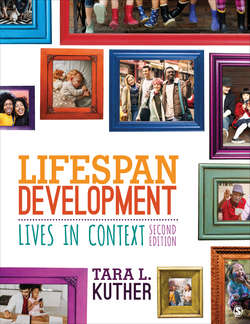Читать книгу Lifespan Development - Tara L. Kuther - Страница 392
На сайте Литреса книга снята с продажи.
Heteronomous Morality
ОглавлениеCognitive-developmental theorist Jean Piaget (Piaget, 1932) studied children’s moral development—specifically, how children understand rules. He observed children playing marbles, a common game played in every schoolyard during Piaget’s time, and asked them questions about the rules. What are the rules to the game? Where do the rules come from? Have they always been the same? Can they be changed? Piaget found that preschool-age children’s play was not guided by rules. The youngest children engaged in solitary play without regard for rules, tossing the marbles about in random ways. Piaget posited that moral thinking develops in stages similar to those in his theory of cognition.
By 6 years of age, children enter the first stage of Piaget’s theory of morality, heteronomous morality (also known as the morality of constraint). In this stage, as children first become aware of rules, they view them as sacred and unalterable. For example, the children interviewed by Piaget believed that people have always played marbles in the same way and that the rules cannot be changed. At this stage, moral behavior is behavior that is consistent with the rules set by authority figures. Young children see rules, even those created in play, as sacred, absolute, and unchangeable; they see behavior as either right or wrong; and they view the violation of rules as meriting punishment regardless of intent (DeVries & Zan, 2003; Nobes & Pawson, 2003). Young children may proclaim, without question, that there is only one way to play softball: As their coach advocates, the youngest children must be first to bat. Preschoolers will hold to this rule, explaining that it is simply the “right way” to play.
By 6 years of age, children become aware of rules, and they view them as sacred and unalterable. Children interviewed by Piaget believed that marbles are always played in the same way and that the rules cannot be changed. In the heteronomous stage, children believe that moral behavior is behavior that is consistent with the rules set by authority figures.
iStock/Yamtono_Sardi
